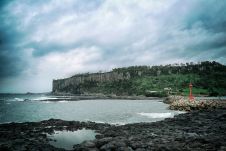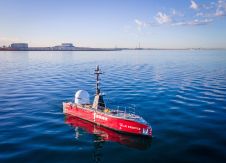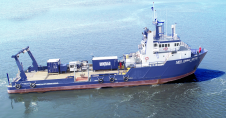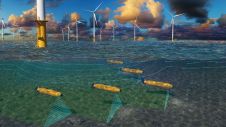Changing Role
Around the world, Hydrographic Offices, Societies and the International Hydrographic Organization celebrated World Hydrography Day on 21 June to raise public awareness for the vital role played by hydrography in almost everyone's life. A celebration often goes hand in hand with some contemplation, and this year it centred on the theme ‘Human Resources - The Important Element to the Success of Hydrography'.
The questions: how do we attract the best people in a competing environment in which the young are spoilt for choice and where long periods at sea do not always make for a first choice of career? What does this situation require of companies and their HR departments? Is there a role here for learned societies and universities? I'm not going to pretend to try to answer all these questions here. Rather, I would like to pose some more, an important one being the role of the hydrographer of the future.
World Hydrography Day presents a good opportunity to think about changing professional roles- including those in human resources - because this is so closely linked to how young people look for and choose a career. And while answers to questions on how to deal with human resources are never one-dimensional, HR is a profession in itself and one working with a richly endowed toolkit. This means it has multiple views on how a profession changes, which makes the whole hydrography problem even more troubled.
Hydrography is much more than just gathering data to draw charts for safe navigation. However obvious this may sound, it's certainly not universally held, even among hydrographers, that their professional expertise may be put to use for more than the traditional purpose. Yet those who feel this way are becoming an extinct species. The truth is very different: take for instance hydrography as major supporting field in assisting the marine industry in becoming more energy efficient; gathering and combining new and old data in order to help ships navigate on not just a safe, but also an energy-efficient route. Or hydrography as a vital factor in oil and gas and mineral resource exploration and recovery. Look at the role of the hydrographer in coastal-zone management, construction and engineering of ports and other coastal structures. All in all, to confine it to safe navigation is highly underrating the role of hydrographer, which is poised to change from data gatherer to that of data manager and data interpreter.
This view of the profession will make it much easier to attract young people and career switchers. The field will grow organically. The new hydrographer will be needed in many of organisations and companies, and this will greatly facilitate the work of the normal HR department. On to the next World Hydrography Day!
P.S. oung people, career switchers and other interested parties are invited to visit www.hydro-international.com where you will find all vacancies in hydrography under ‘Jobs' . Go and have a look!

Value staying current with hydrography?
Stay on the map with our expertly curated newsletters.
We provide educational insights, industry updates, and inspiring stories from the world of hydrography to help you learn, grow, and navigate your field with confidence. Don't miss out - subscribe today and ensure you're always informed, educated, and inspired by the latest in hydrographic technology and research.
Choose your newsletter(s)
























